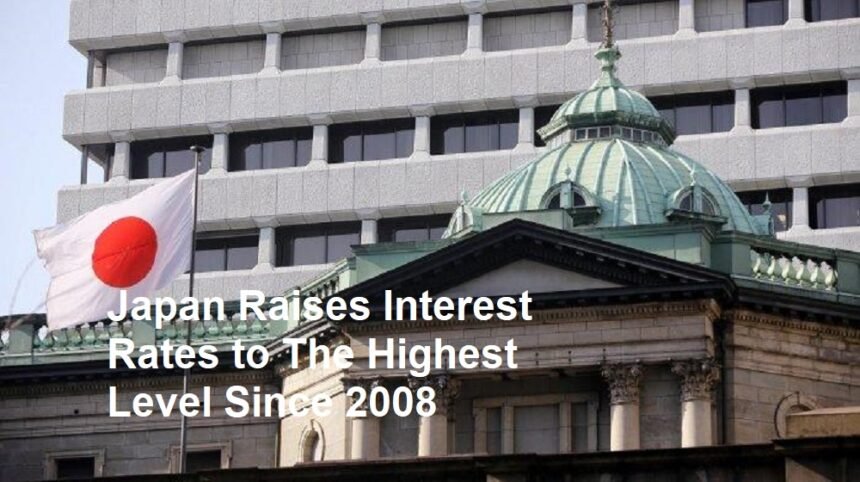In January 2025, the Bank of Japan (BoJ) announced a 0.25% increase in its benchmark interest rate, raising it to 1.00%, the highest level since the global financial crisis of 2008. This move took many by surprise, as Japan has long maintained a very loose monetary policy with ultra-low interest rates in an effort to stimulate its stagnant economy. The decision comes after rising inflation pressures and an attempt to respond to both global economic shifts and domestic conditions.
Japan has been in a prolonged period of low interest rates for nearly two decades. Much of this policy has aimed to encourage consumption and investment amidst economic stagnation and deflation. Since the global financial crisis in 2008, the Bank of Japan has vigorously attempted to boost inflation and stimulate growth through measures such as quantitative easing and even negative interest rates. However, despite these substantial efforts, inflation has remained stubbornly low for years, with only recent months showing signs of more significant price increases.
In recent months, Japan has experienced inflation that is higher than what the BoJ had initially targeted. Factors such as rising global energy prices, stronger domestic demand, and disruptions in global supply chains have led to increased inflationary pressures. The Bank of Japan now believes that, while Japan’s economy still faces significant challenges, the interest rate hike is necessary to manage runaway inflation and begin the process of normalizing monetary policy.
This interest rate increase has significant implications for both Japan’s economy and global financial markets. For Japan, this marks a major shift in the monetary policy that has been in place for over two decades. Initially, markets responded with some uncertainty, as tightening monetary policy could slow economic growth and affect consumer purchasing power, which is already weak in Japan.
However, this rate hike aims to reduce Japan’s dependency on loose monetary policy, which has often been criticized for contributing to an ever-growing government debt burden. With higher interest rates, the Bank of Japan hopes to stabilize prices and provide room for the economy to adjust to changing global conditions, especially the strengthening of the yen.
From a global financial market perspective, Japan’s interest rate hike is likely to influence international capital flows. The Japanese yen, which has long been viewed as a safe-haven currency, could strengthen following this decision. This could have an impact on international trade, as a stronger yen might affect Japan’s export-driven economy, making its goods less competitive in the global market.
The Japanese government has welcomed the Bank of Japan’s decision as a necessary step to maintain price stability in the face of rising global inflation, which has been triggered by factors such as energy crises and geopolitical tensions. Prime Minister Fumio Kishida emphasized that although there may be short-term risks to economic growth, it is crucial for Japan to make adjustments to protect the purchasing power of its citizens and maintain long-term economic balance.
On the other hand, some economists have warned that, while this move is essential to control inflation, raising interest rates could also pose risks to Japan’s fragile economic recovery. The country continues to face challenges such as a rapidly aging population, relatively low unemployment rates, and limited domestic demand. Higher interest rates may dampen household consumption, potentially slowing economic growth even further.
There are also concerns that, despite rising inflation, the BoJ must tread carefully so as not to derail Japan’s fragile economic recovery. Japan must balance tightening policies with fiscal measures that support vulnerable sectors, such as manufacturing and healthcare.
The rate hike by the Bank of Japan also comes amid a global trend of central banks tightening monetary policy to respond to rising inflation. Other major central banks, such as the U.S. Federal Reserve and the Bank of England, have already implemented higher interest rates as part of their efforts to tackle persistent inflation. With Japan now raising its rates, there may be a shift in international capital flows, potentially leading to greater investment in Japan’s markets, strengthening the yen, and boosting investor confidence in the country.
However, this decision also highlights the significant challenges Japan faces, having long relied on low interest rates to stimulate growth. Japan will need to navigate these challenges carefully to ensure that the shift in policy does not exacerbate long-term economic problems, such as low birth rates and structural deflation.
The Bank of Japan’s decision to raise interest rates represents a significant shift in Japan’s monetary policy, which has been characterized by ultra-low interest rates for nearly two decades. This rate hike is intended to control rising inflation but also brings risks to Japan’s still fragile economic recovery. The effects of this policy shift will not only be felt within Japan but will also have global repercussions, particularly in terms of the yen’s exchange rate and international capital flows. The Japanese government and the Bank of Japan will need to carefully manage this transition to ensure that they strike a balance between price stability and sustainable economic growth.













